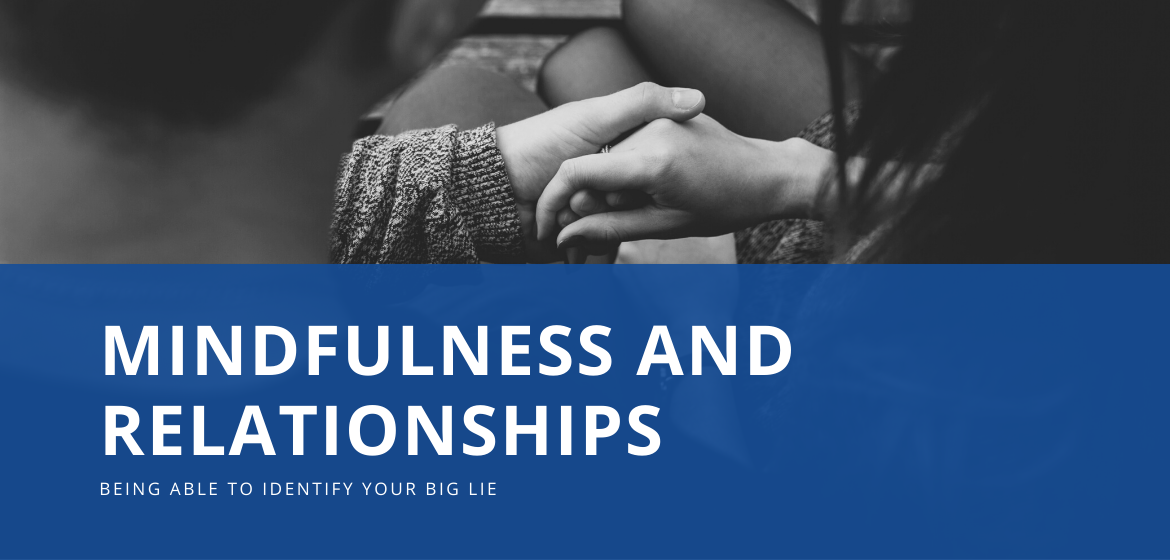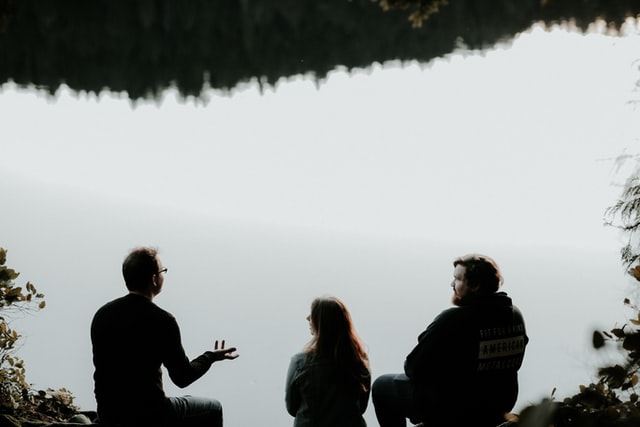
Mindfulness and Relationships, being able to identify your Big Lie
During a talk on mindfulness and relationships, Christine Beekman went into detail on the importance of identifying your big lie and how events from your childhood can impact on your relationships as an adult. There’s so much said about mindfulness these days and so much information available. Not everyone is interested in doing a formal practice or an 8-week programme. However it is something that can be applied to daily life, sometimes it can be as simple as a 3-minute breathing space.
In this day and age wellness is really important and various elements of wellness (the wellness wheel) that we need to watch out for focus on the present. We need to focus on caring for our emotions as well. There are four big elements of existentialism that are being challenged:
Sooner or later we will be confronted with the fact that we will die – We don’t think about this often, however, we have been faced with it a lot in the last two years:
- Isolation – Everyone is in a way isolated but we are social beings and connected. It can be very difficult to face that isolation, especially as it has been enforced in the last 18 months. It is being challenged at the moment but many people have been isolated for a long time.
- Freedom – Learn that it can be a gift but also a responsibility. Again this has been challenged due to Covid
- Losing sense of meaning – Many people didn’t see any meaning in their lives, they lost what they had before
So it’s not surprising that so many people have been affected. Physical, mental and emotional were all affected in the last 18 months. So many areas were challenged in the last few months from spiritual to social and this has impacted on our relationships with others. Be it family, community, how we communicate with those around us. If we don’t have that balance (much like a car) it can result in us not reaching our destination.
Mindfulness & Relationships
One of the big aspects of it is that we have to be a bit like the swaying palm rather than the mighty oak. Being open, flexible, adaptable means that when the storm comes the palm can move with it where the mighty oak tree will fall.
Some of the aspects of mindfulness and relationships that we may have is awareness of ourselves. We also need to learn those emotions in our relationships without getting angry, withdrawing, or people-pleasing. Rather than being pushed or pulled in to it, we observe our emotions. We take note of how we feel, once we learn that we learn how to respond rather than react. It allows us the space for how we can react on a daily basis.
There are various degrees of relationships that we react to.
- Periphery – Someone you see from time to time
- Acquaintances – We might see them a bit more often
- The B-List – Closer again (we’re not attached at the hip) part of the group of friends we see often
- The A-List – This is the core of people that we care about. We have worked hard with these people. We let our defences down around them. They would have to do a lot to lose them, however, it can leave deep scars if something happens.
- Workplace – These have the power to make us feel a certain way. It’s why the focus on work culture can be important
- Family
- Significant others – These are the people we have given the power to make us feel certain. These people really really matter to us.
In relationships there can be the honeymoon period then as you get to know them more slowly buttons start to get pushed and invariably feelings from the past will get triggered and things spiral down from there. It’s the experiences from the past that will trigger our emotions in the present, that’s what causes the problems. If this happened in the past will it happen in the future. This is where problems in our relationships will start.
The Big Lie
It brings up thoughts of not being competent or lovable. When we’re babies we think everything is fine, then we learn as children through our parents, siblings, teachers and friends lessons (what’s good, what’s bad). What happens is these people may have a bad day and then this will impact our own lives. This impacts us in one of two ways. We either think “I’m not competent” or “I’m not lovable”. This is where the big lie of our life is formed. It’s really important to think about this and see which one is being triggered as any emotion can be brought back to one of these two.
We all have this big lie upon which our life is based, this is a big part of mindfulness and relationships. When this big lie is created we react in one of three ways
- Attacking
- Withdrawing
- People pleasing
That becomes our emotional body. We then go through life and in our emotions sits this big button of not being competent or lovable. That gets triggered in our relationships. We grow up and develop rational minds that can interpret situations correctly, except for the ones related to our past. It’s essential for all of us to find this big lie as all our vulnerabilities are based on this lie. Every time we think I’m not good enough it links back to this.
Our mind is taken over by the patterns of negativity, thoughts of letting people down, of being judged. People who are bullied as children can have an effect on their later relationships. They will look at things from the perspective of “it has to be me”. That will always be there. That’s why mindfulness can be so important as you can be aware of when that gets triggered. Rather than falling into that spiral again, you can see where these things are coming from.
When arguments happen in relationships it is out of pure vulnerability. It is not that nobody loves each other anymore. It is just the vulnerability of the child. The big lie is being triggered and then the reaction that we learned
Even if for today that you just focused on that and where your Big Lie came from, where did your beliefs about yourselves come from this would be a great starting point.

























